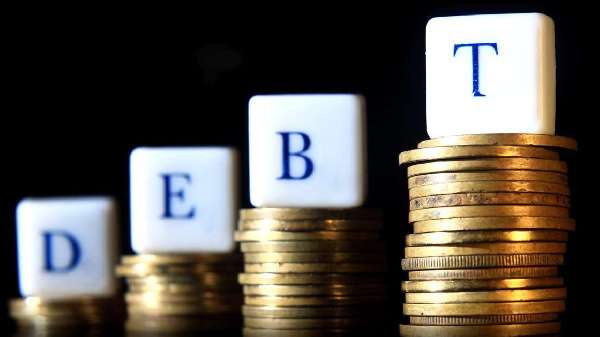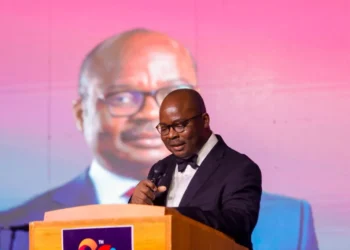Ghana has accrued more external debt in 2022 than it has in the previous years, with external debt close to $30 billion, which makes it a bigger hurdle to cross now that it has concluded on its Domestic Debt Exchange Programme (DDEP).
This amount is worth 66.5% of the total debt stock of the country which stands at $43.9 billion.
A breakdown of the amount owed externally, shows that Ghana owes China about $1.7 billion; Paris Club countries, $1.9 billion; Multilateral debt of $8.1 billion; Eurobonds, $13.1 billion and other creditors, $3.2 billion.
The International Monetary Fund (IMF) as its conditionality for government’s with unsustainable debt like Ghana to be funded has it that external debt be restructured, leaving Ghana with no other option but to strive towards doing so.
With the first phase of the hurdle crossed to acquiring IMF’s $3 billion bailout loan, which is intended to revive the economy, Ghana moves on to the next phase of its journey; to restructure its debts with its external creditors.
Many Ghanaians more specifically, financial and economic analysts seem to question the possibility of Ghana’s external debt structuring considering the huge chunks of money the country owes externally as well as the length of time invested in engaging and convincing various stakeholders to engage in its Domestic Debt Exchange Programme.
However, Prof. Peter Quartey, Economist and Vice National Advisory Board Chairman of the Hunger Project in Ghana, is optimistic that government’s external debt programme will not suffer the same setbacks of its DDEP.
The economist believes that once government goes by the framework of the International Monetary Fund (IMF) and the World Bank to guide its efforts and doesn’t stick to the same approach used in the DDEP, the process will go on smoothly. Prof. Quartey disclosed this on the sidelines of the National Dialogue Series, organized by the Ghana National Chamber of Commerce and Industry (GNCCI).
“I think with the external, what I can see that there is a consultant from France, who has been engaging them already while we were going through this Domestic Debt Exchange Programme. So within, I believe the consultation has started already and also, the IMF as the World Bank has a framework which will guide the whole discussion. So in my view, that programme will be much better. The only challenge is that, there are many creditors…”
Prof. Quartey
The government has begun its engagement with the various external creditors on how it can restructure the debt it owes them.
Beginning with China, the Finance Minister of Ghana, Ken Ofori Atta, revealed that talks are underway with China over Ghana’s debt following a successful Domestic Debt Exchange Programme.
Mr. Ofori-Atta said negotiations with China are important because they hold the majority of the external bonds and thus, going with a delegation to China to plead for debt cancellation.

“The big elephant in the room is China, we will be visiting China by the end of the week to really discuss how they come into the envelope as quickly as possible. So we are looking at that support from them. China represents about a third of the $5.7 billion loan and so it is important that we engage them.”
Ofori-Atta
Recalling, in January 2023, the International Monetary Fund (IMF) says it is working towards a debt cancellation programme for Ghana and other countries amid a global economic recession scare this year.
These other countries made mention of include: Ethiopia, Zambia, Chad, Lebanon, Surinam, and Sri Lanka.
The move, Madam Kristalina Georgieva, the IMF Managing Director, said was to avert any “bad surprise” on the global economy, out of which 25 percent had its trade in emerging markets territories.

“We’re working hard to press for debt resolution for these countries, and we’ve engaged with the traditional creditors, the Paris Club, the non-traditional creditors, China, India, and Saudi Arabia. Our call is very simple: Urgently we have to act.”
Georgieva
READ ALSO: GSE to Bounce Back to Winning Ways With Positive Returns By End of the Year





















